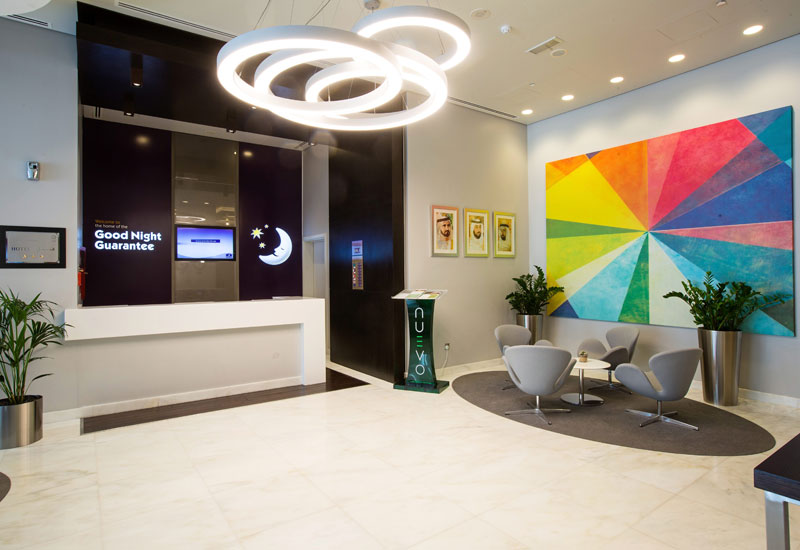 "Outdated and low quality hotel management software generally offer limited features; not all of those features that you critically require," says eZee Technosys CEO Aeijaz Sodawala.
"Outdated and low quality hotel management software generally offer limited features; not all of those features that you critically require," says eZee Technosys CEO Aeijaz Sodawala.
To what extent can hotel management software increase efficiency?
AMIT: The challenge of managing an ever-growing list of reservation portals is one. The need for sharing guest profiles across departments is another. The cost efficiencies that can be gained by electronically sharing data between functional departments and demolishing information silos is yet another. Chains could gain from cross selling properties by using a computer reservations system. They could also improve purchase efficiency by consolidating requirements across properties.
FRANK: Hoteliers can become flexible in imaginative ways, for example, Base7booking users can check-in a guest in their tablet, run to the bar to prepare a cocktail, add it to the guest’s account, and at the same time review all upcoming reservations in the same device with one touch. One person can accomplish different roles and multi-task from one device. Furthermore, as hoteliers have a complete overview of their occupancy, rates and bookings, they understand their property and can enhance their strategies. New software also means integration with the latest and most effective tools, like payment platforms, channel managers, housekeeping monitoring, loyalty software, virtual concierges, online statistics, mobile check-in and out, and many more. Hoteliers can cover their daily operations from their mobile devices and they can become so efficient that they can even remove their front desk to take care of their guests. This was impossible with old solutions.
AEIJAZ: In my opinion, software at your hotel gives you real-time control over your business. When systems are synchronised, money is saved and a major part of your time is saved. Your data resides in one place, and you can monitor performance across numerous operations, distribution, services and 360-degrees administration. Moreover, reports and statistics make operations easier for you. Consequently, you can make better informed decisions based on the accurate information. You get real-time reservations, online bookings, channel management and guest management as well. It is the key to constantly grow and stay ahead of the competition, while reducing
operational complexity and cost.
PRAVEEN: The penultimate purpose of using a HMS is to automate hotel operations as much as possible. If the software is not designed with the user in mind, a user could end up spending more time using the software rather than concentrating on improving guest satisfaction. General managers are always interested in running an operation that strives on high efficiency levels with no disparity between the various operational segments. An ERP approach is critical where all various departments are tightly integrated via the software platform. HMS providers empower not only the front office user but also seamlessly interconnects the front-of-house functions with the back-of-house operations such as accounting and material management.
What are the key factors a hotelier must consider when purchasing software?
AMIT: We believe technology products should optimise hotel sales and revenues. This can be achieved by increasing operational efficiency, resulting directly from the use of better software. Hoteliers should ask how the implementation of any software will assist and automate management activities, hence improving revenue contribution from repeat guests, while enabling the hotelier to better manage the business.
FRANK: First of all, hoteliers should make sure the software is made for their type of property. You can’t expect a B&B to use a system made for hotel chains because they have different dynamics and have different needs. Second, it should cover daily operations and should be user-friendly, so staff from front desk to housekeeping can understand the software and work with it. On the technical side, language is essential, as well as legal and country-related features for taxes or government reports. In this digital age, powerful hotel management software must be connected to all distribution channels and offer complete business insights to hoteliers. Security and connectivity are essential, as a PMS deals with important hotel information, so confirming encryption, automatic back-ups and different servers is a must. On top of that, solutions should be intuitive, mobile and flexible. Last but not least, it should offer excellent support.
AEIJAZ: A hotelier should always examine his major requirements before picking up new software, here we can enlist some significant factors they should consider: speed and efficiency of software, does it work offline or online, does it offer reservation and online booking facilities and guest management, does it feature mobile options?
PRAVEEN: When investing in a PMS a hotelier needs to consider: ease-of-use, automation of workflow, software stability, customer service and support, does it improve revenue by providing tighter cost control enabling cost reductions in various operational segments? Last but not least, consider a PMS that has a suite of integrated mobile applications for the guest facing segments of the property such as front office and point-of-sale.

| Advertisement |









 Search our database of more than 2,700 industry companies
Search our database of more than 2,700 industry companies









